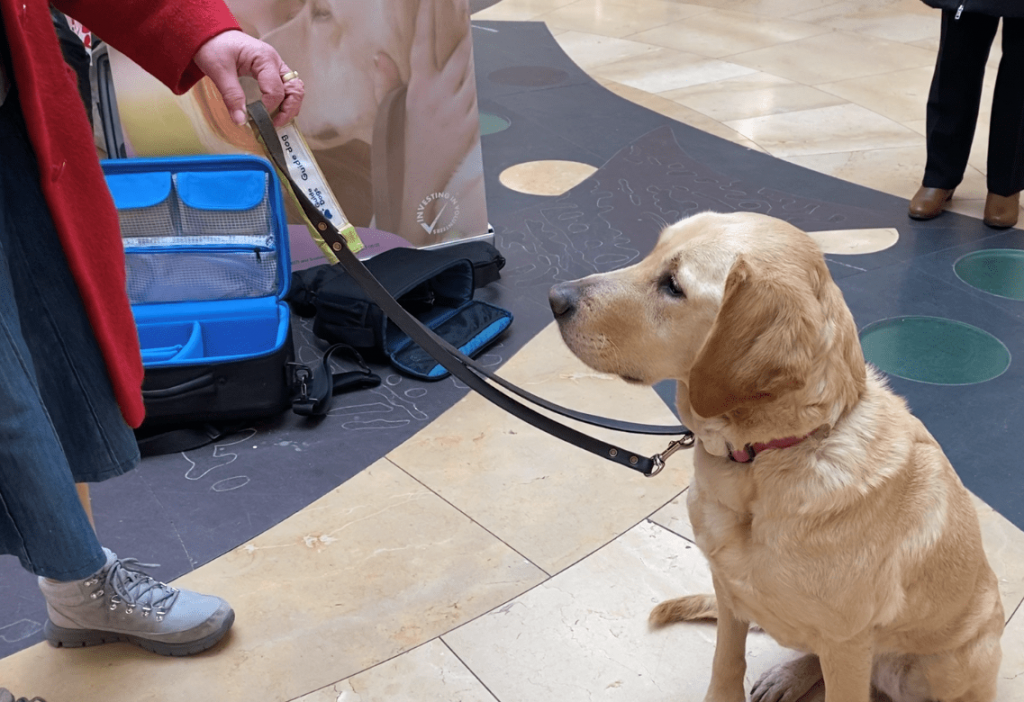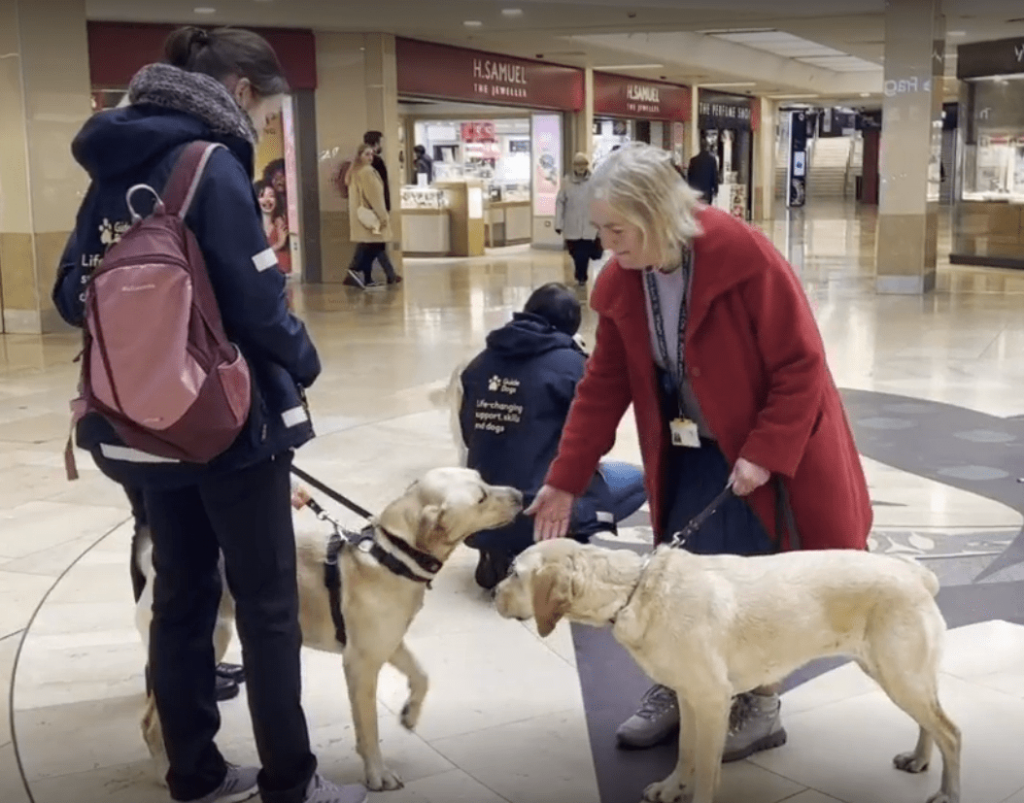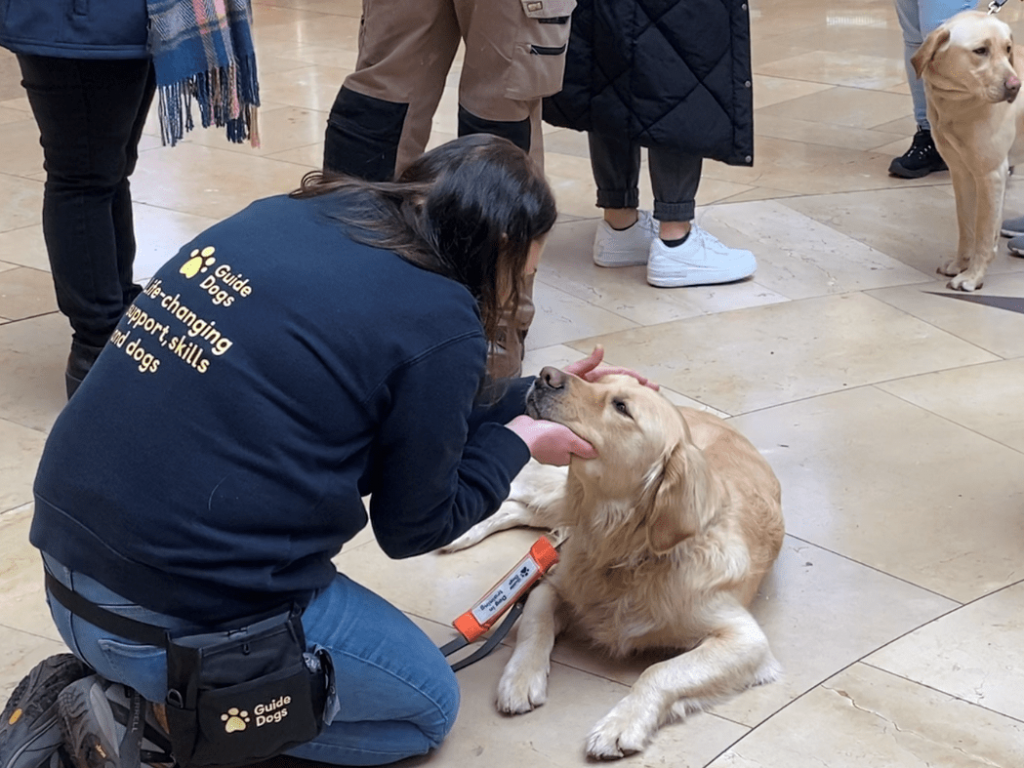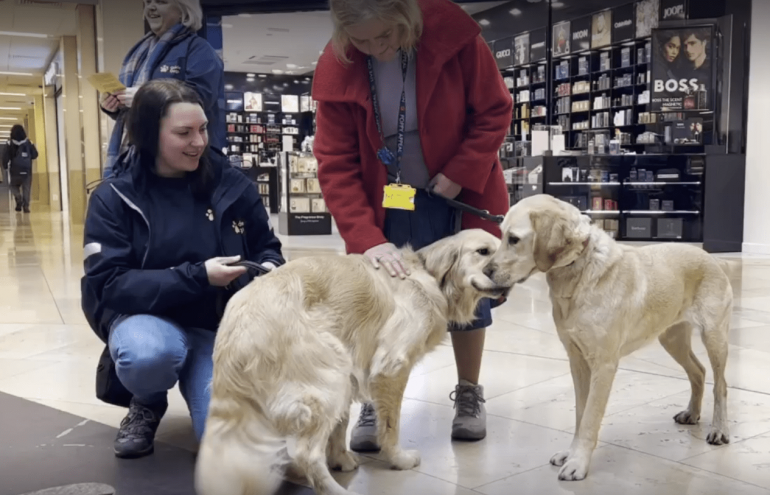Guide dogs Portia, Nigel, and Sarah were the centre of attention at the event to try to recruit shoppers to volunteer for the charity.
The charity says they need more volunteers for a variety of roles – from fundraising to puppy raising.
Jaye Connelly from the charity says the voluntary work is essential – but they need more.
“We’ve had a lot more dogs coming in than we normally have so we’re a bit short on fosters at the moment and there’s people that we’ve [normally] got who are having a bit of a break.
“So we’ve got around twelve dogs at the moment but we’ve got about twenty dogs coming in this year. We’re just a bit low on the [volunteer] numbers at the moment.”

One role on offer is volunteering to raise puppies. The role involves a puppy home when it’s seven weeks old, and giving it basic training until it’s around a year old.
This means helping the puppy find its way around a home, getting them accustomed to public transport and shops so that it’s calm and well-adjusted – and ready to start guide dog training.
Hilary Lester is a guide dog owner and also volunteers as a fundraiser. She says her dog, Portia, has changed her life.
“Portia is my best friend. We go everywhere together. When you’re using a cane, you have to do all the work. With Portia I just pick up her harness and I let her do the work! Mentally, [using a cane] is just really tiring – people don’t talk to you nearly as much.
“When you’ve got the dog somebody will come over and say ‘oh what a lovely dog you’ve got, do you need any help?’ Without the dog, they won’t necessarily.”

But even if you can’t foster a dog, Guide Dogs Cymru says there are plenty of volunteer roles to fill that don’t involve taking on a new family member.
Ruth Evans, from the charity, said; “We need volunteers basically. We are looking for volunteers from across Wales – and especially Cardiff.
“We want people to come and join us for a day and they fall in love with the guide dogs, and hopefully they want to help and support us.”

Hazel Kelly says they hope the campaign helps to “share the love for guide dogs” and that volunteering is all about “giving something back to the community.”
She adds that “we’re never going to meet the demand for guide dogs” – the charity also trains ‘sighted guides.’ This is a voluntary role that involves helping out people with sight loss by acting as a guide for a few hours a week. Hazel points out that this has the additional benefit of helping to reduce loneliness and isolation.
According to the charity, there are around 2 million people in the UK who are visually impaired – but only 5,000 trained guide dogs. Guide Dogs Cymru states they have more than 14,000 volunteers – but with no government funding, they rely purely on donations and voluntary help.

